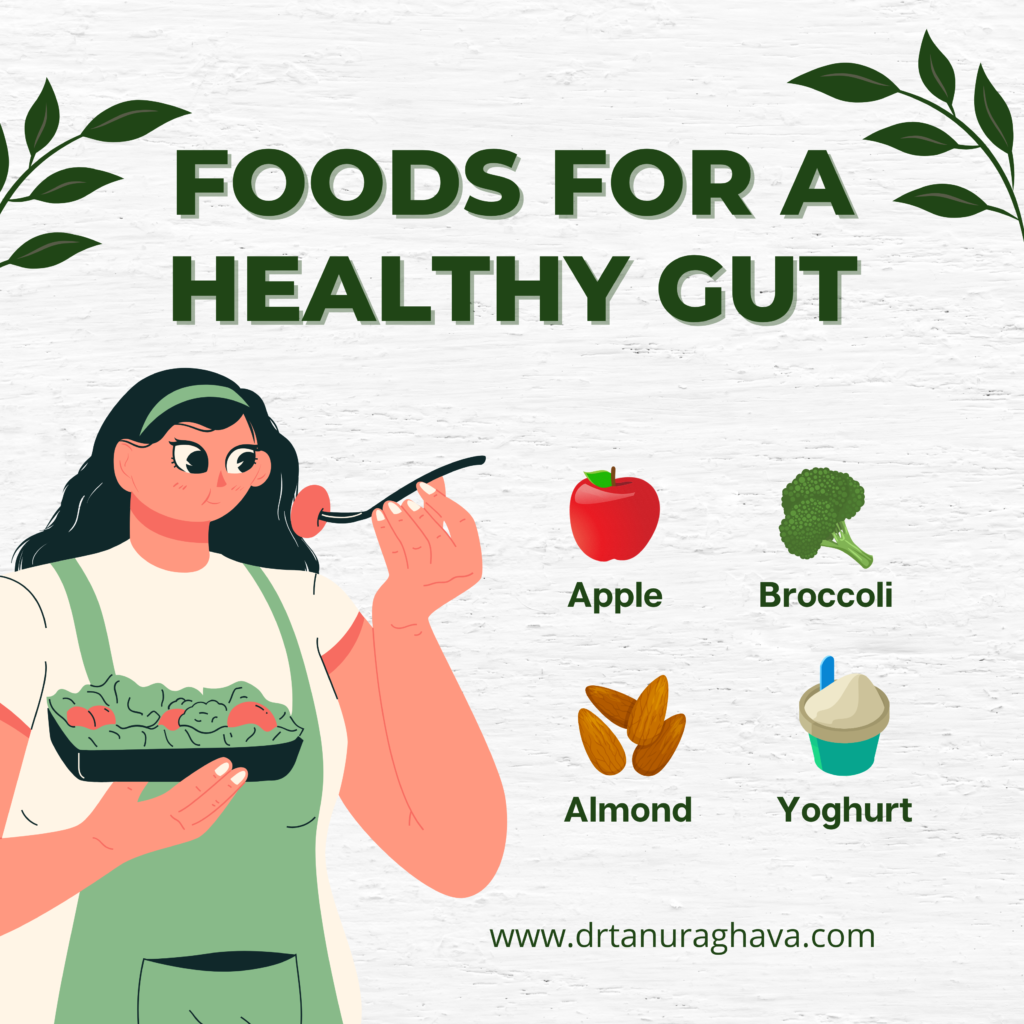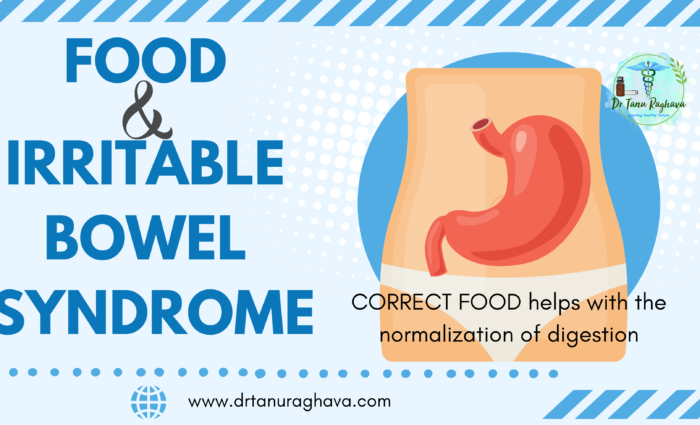Introduction
Table of Contents
ToggleIrritable Bowel Syndrome (IBS) is a common gastrointestinal disorder characterized by abdominal pain, bloating, gas, diarrhea, constipation, or a combination of both. While the exact cause remains unknown, factors such as diet, gut microbiota, stress, and genetic predisposition play significant roles. Proper nutritional guidance is a cornerstone in managing IBS symptoms effectively. This blog explores a detailed scientific approach to the dietary management of IBS, ensuring optimal gut health and improved quality of life.
Understanding IBS and Its Dietary Triggers
IBS can be categorized into different subtypes based on bowel habits:
- IBS-D (Diarrhea-predominant)
- IBS-C (Constipation-predominant)
- IBS-M (Mixed-type, alternating diarrhea and constipation)
- IBS-U (Unclassified IBS)
Understanding IBS: The Root Causes
IBS is classified as a functional gastrointestinal disorder, meaning there are no structural abnormalities, but the digestive system does not function optimally. Potential causes include:
- Heightened gut sensitivity, leading to pain and discomfort.
- Abnormal bowel motility, causing diarrhea or constipation.
- Gut-brain axis dysregulation, where psychological stress impacts digestion.
- Imbalance in gut microbiota, leading to digestive disturbances.
- Food intolerances, particularly to dairy and gluten.
Symptoms of IBS
- Abdominal discomfort and cramping, often alleviated post bowel movement.
- Bloating and excessive gas production.
- Irregular bowel habits, either diarrhea, constipation, or both.
- Presence of mucus in stools.
- Incomplete evacuation sensation.
- Fatigue and disrupted sleep patterns.
Common Dietary Triggers for IBS
- High-FODMAP Foods – Fermentable Oligosaccharides, Disaccharides, Monosaccharides, and Polyols can exacerbate IBS symptoms.
- Dairy Products – Lactose intolerance often worsens symptoms.
- Gluten and Wheat Products – May trigger inflammation in sensitive individuals.
- Processed and Fried Foods – High-fat content can slow digestion and increase discomfort.
- Artificial Sweeteners and Sugar Alcohols – Sorbitol, xylitol, and maltitol can cause bloating and diarrhea.
- Caffeine and Alcohol – These can stimulate the intestines, leading to symptoms like diarrhea or cramps.
The Role of Nutrition in Managing IBS
IBS symptoms vary among individuals, necessitating personalized dietary plans. The following approaches can help alleviate symptoms and promote digestive health:
1. The Low-FODMAP Diet
The Low-FODMAP diet, developed by Monash University, is one of the most researched dietary interventions for IBS. It involves:
- Elimination Phase: Avoiding high-FODMAP foods for 4-6 weeks.
- Reintroduction Phase: Slowly reintroducing one food at a time to identify triggers.
- Maintenance Phase: Developing a long-term, balanced diet that avoids individual triggers.
High-FODMAP Foods to Avoid:
- Fruits: Apples, pears, cherries, watermelon.
- Vegetables: Onion, garlic, cauliflower, mushrooms.
- Dairy: Milk, cheese, yogurt (lactose-containing).
- Legumes: Lentils, chickpeas, beans.
- Sweeteners: Sorbitol, mannitol, maltitol.
Low-FODMAP Alternatives:
- Fruits: Bananas, oranges, strawberries, grapes.
- Vegetables: Carrots, zucchini, spinach, bell peppers.
- Dairy: Lactose-free milk, hard cheeses, coconut yogurt.
- Legumes: Small portions of canned lentils or firm tofu.
- Sweeteners: Stevia, maple syrup.
2. Fiber Intake: Soluble vs. Insoluble
- Soluble fiber (good for IBS): Oats, flaxseeds, carrots, psyllium husk.
- Insoluble fiber (can worsen IBS symptoms): Whole wheat, bran, raw vegetables, nuts.
Best Approach: For IBS-C, increasing soluble fiber and fluids can help. For IBS-D, moderating fiber intake while avoiding excessive insoluble fiber is beneficial.
3. Probiotics and Gut Microbiota
A balanced gut microbiome is essential for IBS management. Probiotics help by restoring gut flora and improving digestion.
Probiotic-Rich Foods:
- Yogurt with live cultures
- Kefir
- Sauerkraut
- Kimchi
- Miso
Strains such as Bifidobacterium infantis, Lactobacillus plantarum, and Saccharomyces boulardii have shown promising results in IBS symptom relief.
4. Hydration and Electrolyte Balance
- Drink at least 2-3 liters of water daily to maintain digestion and prevent constipation.
- Electrolyte-rich foods like coconut water and bone broth help balance hydration levels, especially in IBS-D patients.
5. Anti-Inflammatory Diet for IBS
Reducing gut inflammation can alleviate IBS symptoms. Incorporate:
- Omega-3 fatty acids: Fatty fish (salmon, mackerel), flaxseeds, chia seeds.
- Ginger and turmeric: Natural anti-inflammatory agents.
- Green tea: Contains antioxidants that support gut health.
- Fermented foods: Kombucha, pickles, and miso aid digestion.

10-Day IBS-Friendly Meal Plan
Day | Breakfast | Lunch | Dinner | Snacks |
1 | Oatmeal with banana and chia seeds | Grilled chicken with quinoa and sautéed spinach | Baked salmon with roasted zucchini | Lactose-free yogurt, almonds |
2 | Scrambled eggs with sourdough toast | Quinoa salad with tofu, cucumber, olive oil | Stir-fried rice noodles with bok choy and shrimp | Blueberries, rice crackers |
3 | Smoothie with lactose-free milk, strawberries, flaxseeds | Grilled turkey with mashed sweet potatoes | Brown rice with grilled zucchini and lean beef | Hard cheese, walnuts |
4 | Chia pudding with coconut milk | Baked cod with steamed carrots and rice | Lentil soup with gluten-free bread | Pumpkin seeds, oranges |
5 | Rice porridge with cinnamon and banana | Grilled chicken with steamed broccoli and quinoa | Miso soup with tofu and bok choy | Dark chocolate (low sugar), grapes |
6 | Omelet with spinach and lactose-free cheese | Turkey sandwich on gluten-free bread | Stir-fried tempeh with vegetables | Hard-boiled eggs, avocado |
7 | Buckwheat pancakes with maple syrup | Salmon with mashed potatoes and sautéed green beans | Brown rice with chickpeas and roasted eggplant | Roasted pumpkin seeds, dates |
8 | Kefir with granola and blueberries | Lentil salad with cucumbers, tomatoes, olive oil | Grilled shrimp with zucchini noodles | Lactose-free yogurt, almonds |
9 | Smoothie with lactose-free yogurt, banana, flaxseeds | Chicken soup with gluten-free crackers | Steamed white fish with carrots and quinoa | Hummus with rice cakes |
10 | Scrambled eggs with gluten-free toast | Quinoa bowl with spinach, feta, and grilled tofu | Lentil stew with brown rice | Walnuts, dried cranberries |
IBS Diet: What to Eat and Avoid

Recommended Foods
Fruits: Bananas, papaya, kiwi, berries, and peeled apples.
Vegetables: Carrots, zucchini, bell peppers, spinach, and pumpkin.
Pulses and Legumes: Moong dal, lentils (properly soaked and cooked).
Nuts and Seeds: Almonds, walnuts, chia seeds, and flaxseeds.
Probiotic-rich foods: Yogurt, buttermilk, and kefir.
Foods to Avoid
- Dairy products (if lactose intolerant).
- Gluten-rich foods (wheat, rye, barley).
- High-FODMAP foods (onions, garlic, cabbage, artificial sweeteners).
- Spicy, fried, and highly processed foods.
- Excessive caffeine and alcohol consumption.
Top 3 Effective Homeopathic Remedies for IBS
- Nux Vomica (Ideal for stress-induced IBS)
Key Symptom: Cramping pain with an intense urge for bowel movement.
Other Indications:
- Bloating and indigestion after eating.
- Constipation with a sensation of incomplete evacuation.
- Symptoms aggravated by spicy foods, caffeine, and alcohol.
- Lycopodium Clavatum (Best for bloating and sluggish digestion)
Key Symptom: Distension and discomfort immediately after small meals.
Other Indications:
- Constipation with hard, insufficient stools.
- Sugar and warm beverage cravings.
- Excessive burping and flatulence.
- Arsenicum Album (Ideal for diarrhea with anxiety)
Key Symptom: Watery, burning diarrhea with weakness.
Other Indications:
- Restlessness and fear of severe illness.
- Diarrhea intensifies at night.
- Preference for warm drinks taken in small sips.
5 Additional Homeopathic Remedies for IBS
- Colocynthis – Effective for cramping pain relieved by pressure.
- Carbo Veg – Useful for bloating and excessive belching.
- Argentum Nitricum – Suited for anxiety-induced diarrhea.
- Podophyllum – Best for sudden, forceful diarrhea.
- Sulphur – Effective for early morning diarrhea with a burning sensation.
Scientific Research on Homeopathy for IBS
Studies published in the Journal of Alternative and Complementary Medicine demonstrate that homeopathic treatments significantly improve IBS symptoms, offering sustainable relief without side effects.
Lifestyle Adjustments: Do's and Don’ts
Do’s:
- Maintain a food journal to identify triggers.
- Eat balanced, portion-controlled meals.
- Stay well-hydrated.
- Engage in relaxation techniques like yoga and meditation.
- Follow a consistent sleep schedule.
Don’ts:
- Skip meals.
- Overconsume alcohol or caffeinated beverages.
- Eat hastily.
- Overuse antibiotics unnecessarily.
- Depend excessively on processed foods.

Top 5 Yoga Poses for IBS Relief
- Pawanmuktasana (Wind-Relieving Pose) – Lie on your back, pull knees towards the chest, and hold the position.
- Bhujangasana (Cobra Pose) – Lie on your stomach, place palms under shoulders, and lift the upper body.
- Dhanurasana (Bow Pose) – Lie on your stomach, grasp ankles, and lift the chest and legs simultaneously.
- Paschimottanasana (Seated Forward Bend) – Sit with legs extended, bend forward, and reach for your feet.
- Marjariasana (Cat-Cow Pose) – Alternate between arching and rounding the back while on all fours.
Bonus Tip: Drinking warm fennel tea daily aids digestion and minimizes bloating naturally.
Conclusion
Managing IBS through nutrition requires an individualized approach. The Low-FODMAP diet, fiber regulation, probiotics, hydration, and an anti-inflammatory diet can significantly improve gut health. By identifying and avoiding triggers while ensuring balanced nutrition, individuals can achieve better digestive wellness and enhanced quality of life. If symptoms persist, consulting a homeopathic practitioner like Dr. Tanu Raghava can provide additional holistic guidance tailored to individual needs.

Frequently Asked Questions (FAQs)
- Can homeopathy cure IBS permanently? Yes, homeopathy significantly alleviates symptoms and prevents recurrence by addressing the root cause.
- How soon can I expect relief with homeopathy? Most individuals experience improvement within weeks to months.
- Does stress impact IBS symptoms? Absolutely! Psychological stress can worsen IBS symptoms.
- Are homeopathic treatments safe for long-term use? Yes, homeopathic remedies are safe, natural, and free from adverse effects.
- Can homeopathy be used alongside conventional medicine? Yes, it can be safely combined with conventional treatments.
For personalized homeopathic consultations, connect with Dr. Tanu Raghava today!





